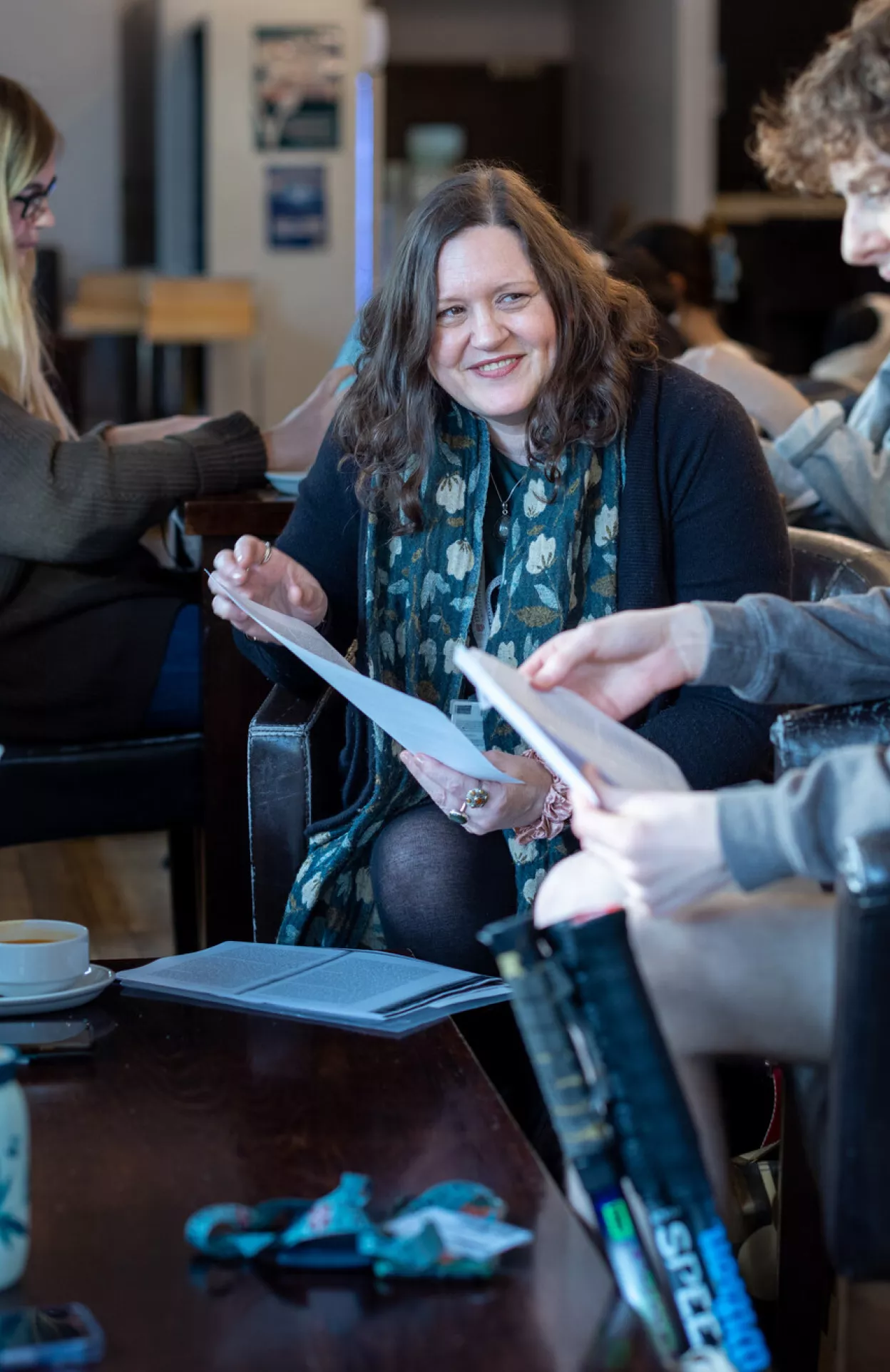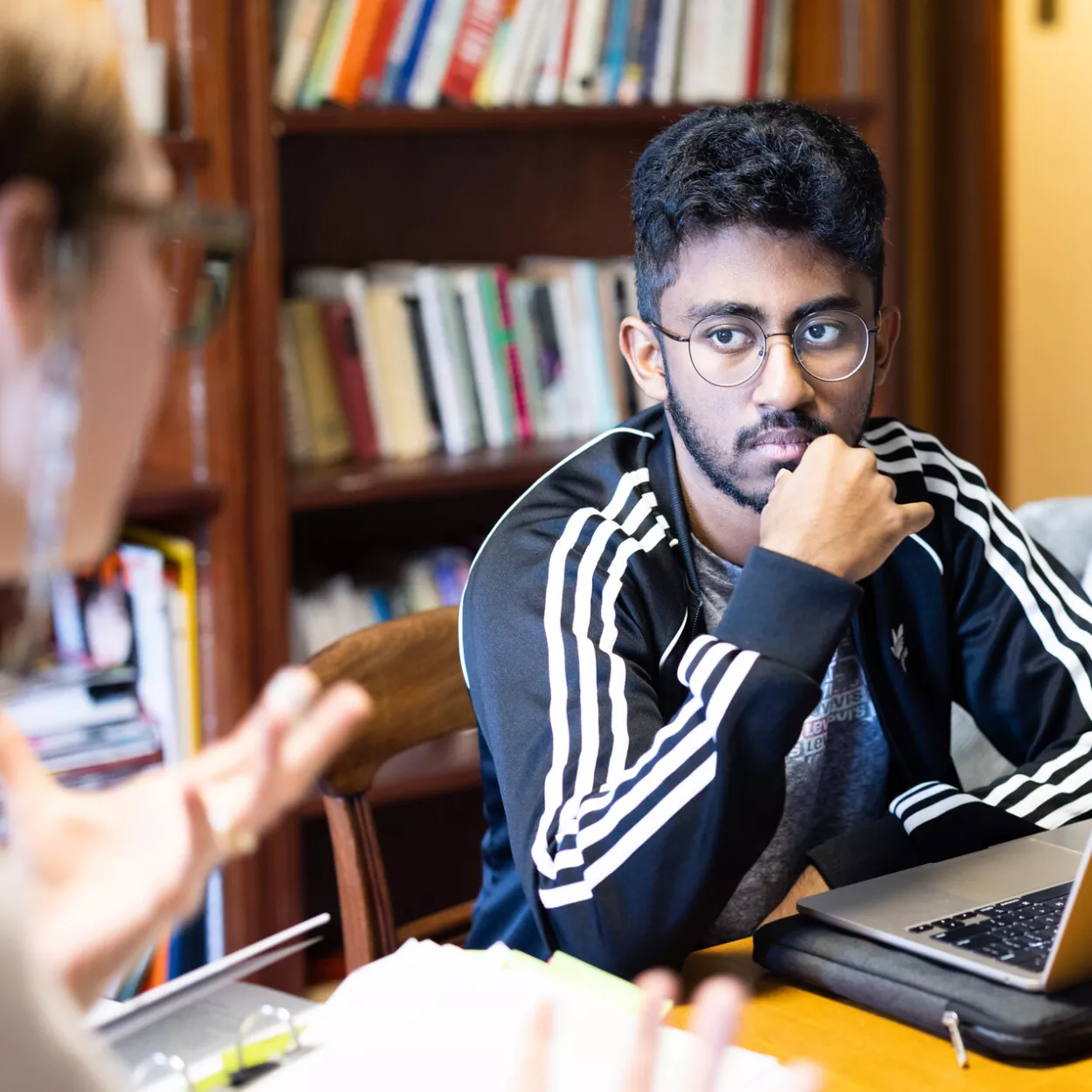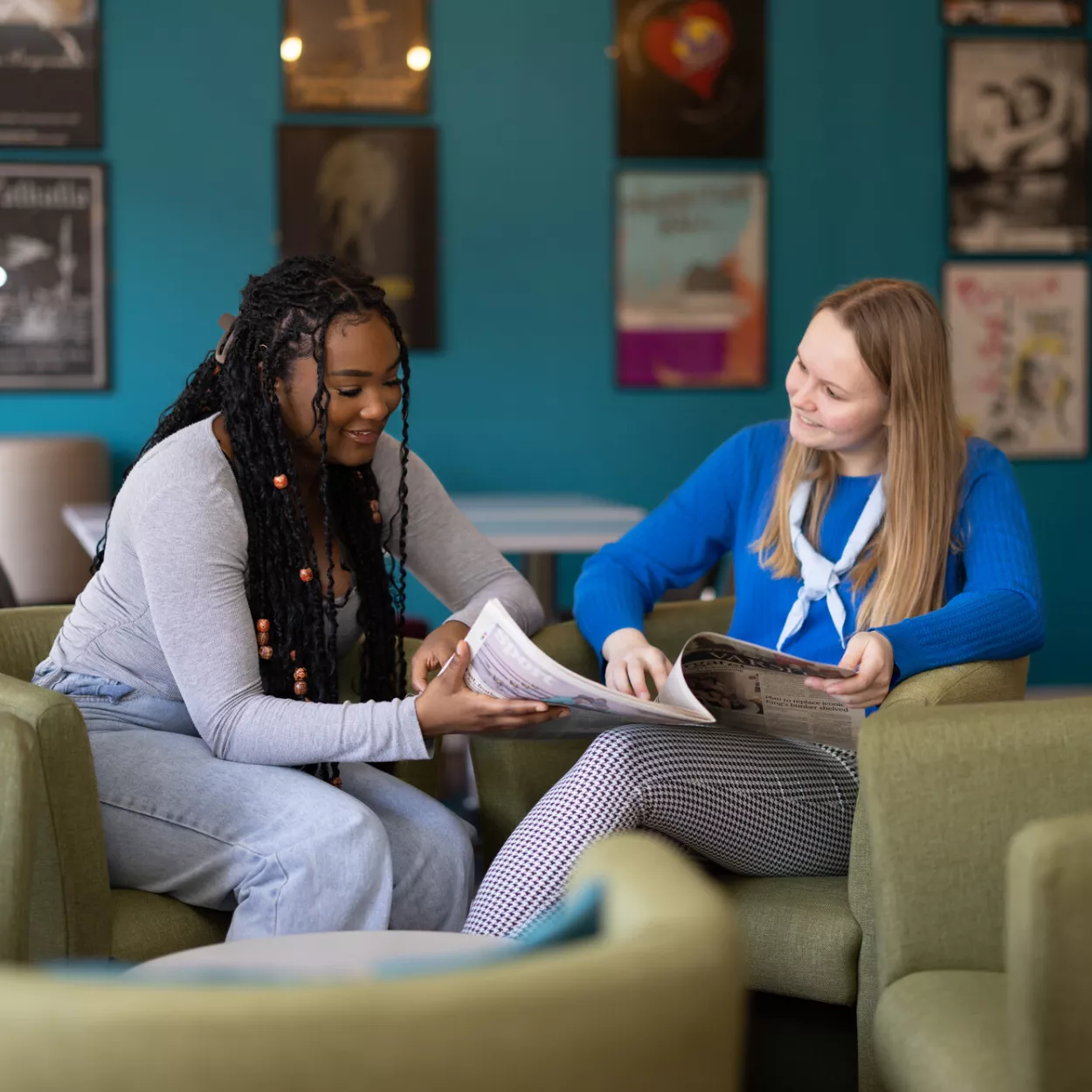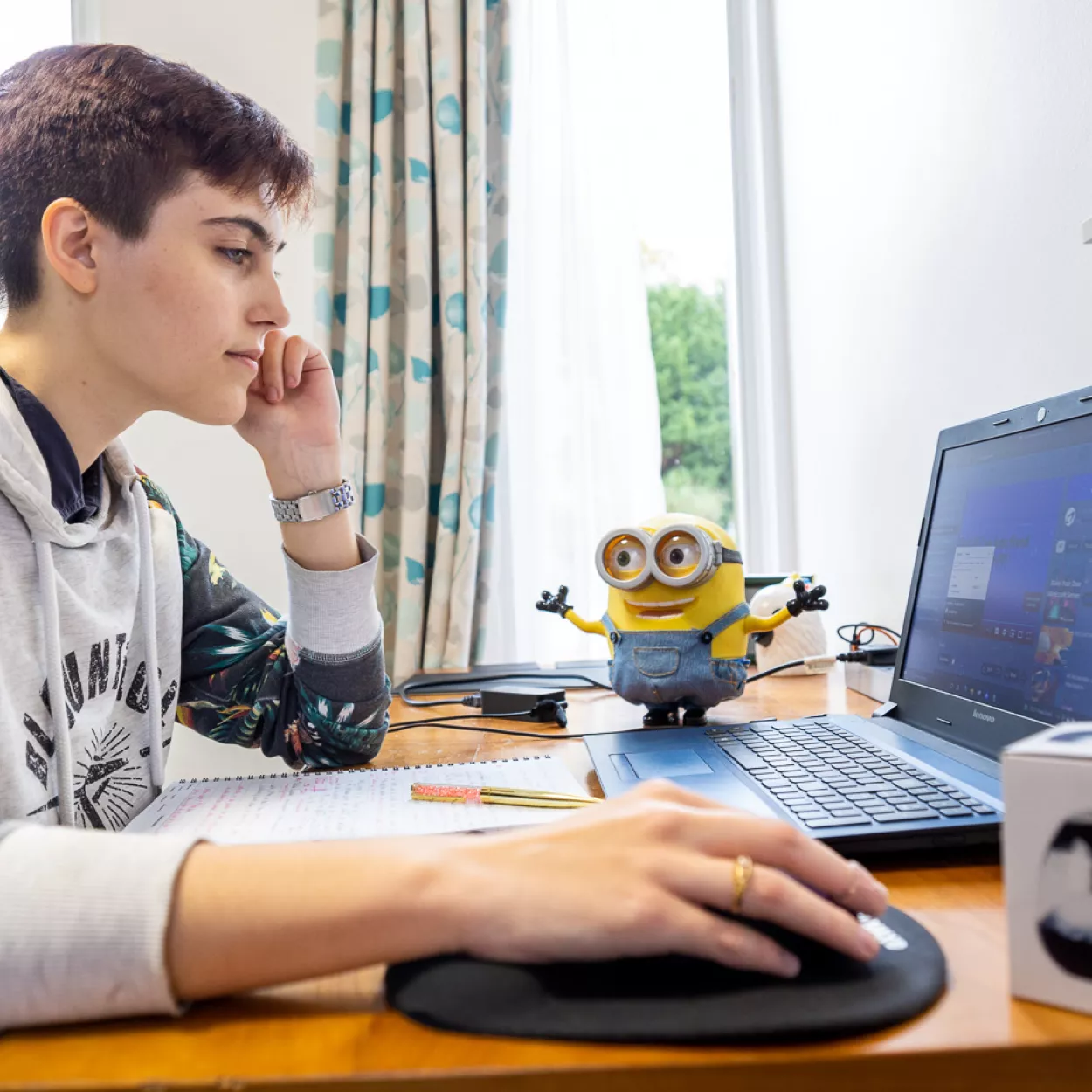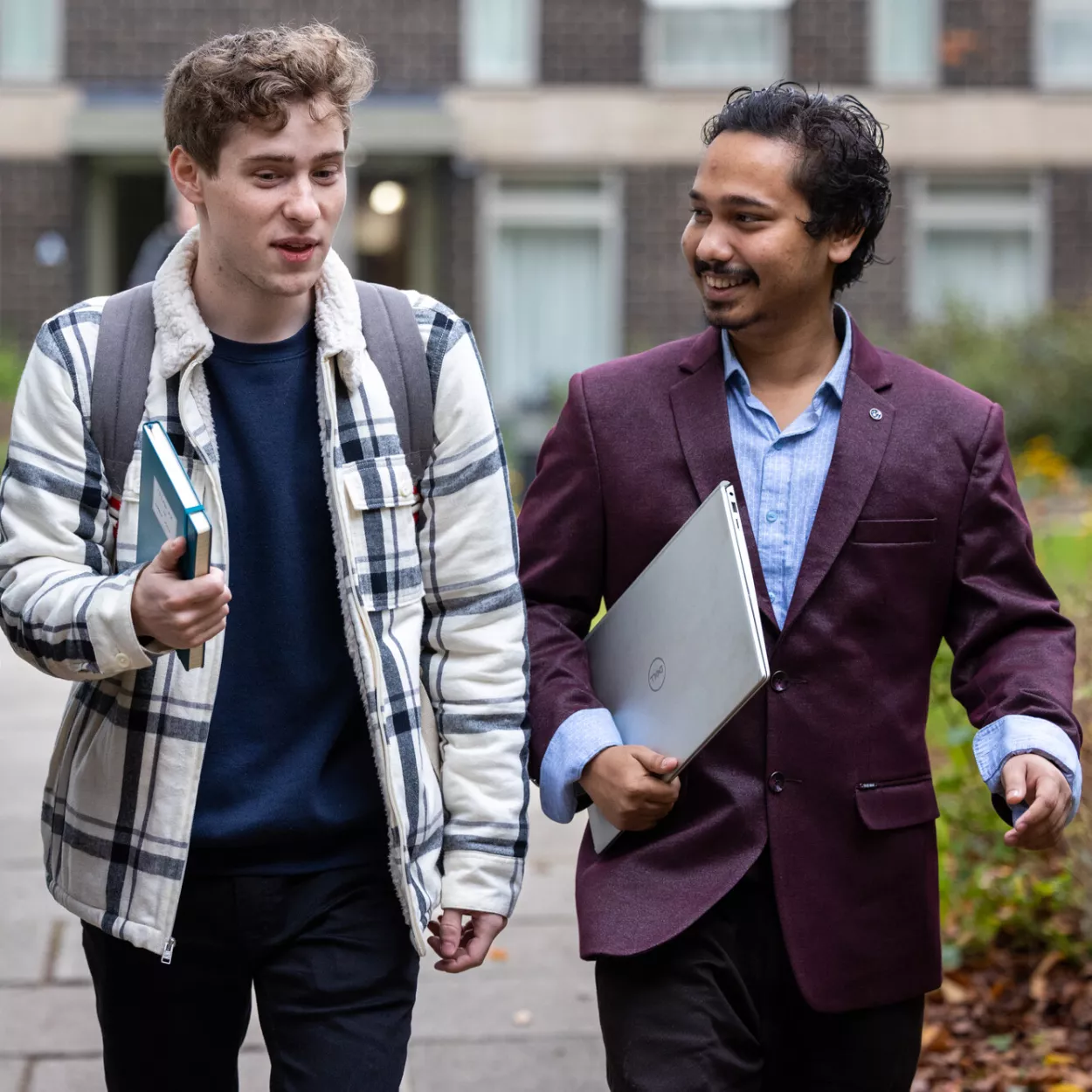Where to start
Applying to Cambridge is an exciting experience, but we understand that it can also be quite intense. On this page we have set out all information you need to guide you through the choices you need to make and the timeline that your application will follow. All the information on this page is also available as a printable download at the bottom of the page. Good luck!
Step 1: Consider a course
Your first step is to choose which subject you would like to study. At Fitz, you can study for any undergraduate course offered by the University - if you're also looking at other colleges, make sure that you check whether they offer your subject. You should take a look at the Faculty or Departmental pages as well as the individual subject pages here on our College website.
Step 2: Choose a college
At Cambridge, as well as being a member of the University, you also become a member of a college. So, once you have decided on a course that you’d like to study, you then need to consider a college choice. We're very pleased that you've decided to take a look at Fitz! Spend some time on this website, do your research on what Life at Fitz is like, come to an Open day, or take a virtual tour. If you've still got questions, get in touch and we'll do our best to help.
Step 3: Apply to Cambridge
Once you've made your subject and college choice, then you're ready to make your application. Remember that Cambridge has an earlier application deadline to that of other UK universities. UCAS applications must be submitted online by the 15 October. In your UCAS application, as well as listing Cambridge as one of your options, you'll need to enter which College you would like to apply to.
Shortly after submitting your UCAS application, you'll be asked via email to complete the online My Cambridge Application (MyCApp) form. In order to make a valid application to the University of Cambridge, you must submit your MyCApp by the deadline set.
For important dates and deadlines following your application to Cambridge, please click here.
What happens after I have applied?
Once we receive your application material, it will be reviewed by both administrative and academic staff. Following this review, a proportion of applications will be rejected. The remaining candidates will then be invited to interview. It is likely that you will be asked to submit written work and/or to undertake an admissions test, either before or during your interview. Interviews are held online, and there is more information below on how interviews are structured and how best to prepare.
After interview you will receive email notification via UCAS whether you have been successful in your application to Fitzwilliam. If you have been 'pooled' (more information below), you will be contacted by the College who has selected you. If you now have an offer, we will contact you with information about the Offer Holders' Day. If you are unsuccessful, you will receive written feedback on your application.
FAQs
-
Personal Statements
Personal statements allow students to tell us about their subject interests, students are advised to follow the UCAS advice about what to include in their personal statement.
Find out more about what we are looking for in your personal statement.
-
Written Work
Applicants may be asked to submit examples of their written work from a relevant A Level/IB (or equivalent) course. Information on which courses require submitted work can be found on each individual course page. We will advise you on what sort of written work we require, where it should be sent and deadline of submission. You can find more information about written work here.
-
Admissions Assessments
Most applicants are required to take a subject-specific written admission assessment, either pre-interview or at interview. More information about the Admissions Assessments can be found here.
See the University of Cambridge course information for details of the associated assessments. Dates for applying for these assessments can be found in our important dates timeline.
-
Interviews at Fitz
Interviews have to be challenging, and you can expect to be asked testing, thought-provoking questions. The interviewers will invite you to speculate, to think on your feet, to discuss problems to which there are often no easy or neat solutions. We are interested in your ability to think for yourself, not in how much you can remember.
We know that candidates are nervous, and make allowances for this. We want you to feel confident enough to express your own views and talk about your own interests. The whole point of interviews is to give the interviewers a sense of the individuality and potential of each student - something that no exam paper can reflect.
Most candidates have two interviews. Each lasts about half-an-hour. One will be with the Director of Studies who is responsible for that subject in the College, the other with College teachers in a related subject. Both will focus on your academic interests but will range widely around that, depending on subject.
Most interviews take place in the first three weeks of December and prospective applicants are advised not to make any unbreakable commitments during this period. Please check back in June 2024 for confirmed method of interview.
Preparing for your Interview
Information regarding how to prepare for an interview can be found on the University’s undergraduate website.
-
Extenuating Circumstances
If there are extenuating circumstances that have caused significant educational or home life disruption or disadvantage for a student, it may be appropriate for the school/college referee or the applicant’s doctor or social worker to complete and submit the Extenuating Circumstances Form (ECF).
More information regarding the ECF and deadlines for submitting the form, can be found on the University’s undergraduate website.
-
Organ Scholarships and Choral Awards
Like most other college, Fitzwilliam awards a range of scholarships for music. While your academic application will be reviewed concurrently to your scholarship application, they are separate. To learn more about the process, and the awards available at Fitz, please click here.
-
Mature Students
If you'll be aged 21 or over by 1 October in the year in which you hope to come to Cambridge and you haven't already completed a higher education course, then you'll be applying as a mature student. Fitzwilliam College welcomes applications from mature students.
The application process for mature students is the same as that for standard-age students, find out more here.
-
International Applications
Fitzwilliam College is a great place to be a student and has a truly global community. The University of Cambridge International Applications website provides information for international students on applying to Cambridge and we have a dedicated page here on our website.
We accept a wide variety of qualifications from all over the world, if you have any questions regarding your international qualifications please contact our Admissions Office – admissions@fitz.cam.ac.uk
-
What is the pool?
Because application numbers to individual colleges vary from year to year, Cambridge has developed a system to redistribute high quality applications.
We want to make sure that the best applicants each year are offered a place, no matter which College they originally applied to or were allocated to.
Your application will be assessed by the College you applied to in your UCAS application, or by the College you were allocated to if you selected the open option.
Your College may be impressed by your application but not have a place for you. If this is the case, they may put your application forward to be considered by other Colleges as well. Colleges would rather admit a strong applicant that applied to another College, than a weaker applicant who applied to them directly or was allocated to them.
To do this, we follow processes (known at Cambridge as ‘pools’) where Colleges can:
- look at applications that were assessed by another College first
- consider these applicants for courses where they have places left
- make offers to the best applicants
This means that you may get an offer from a College that you didn’t originally apply to. More details on this process can be found here.

